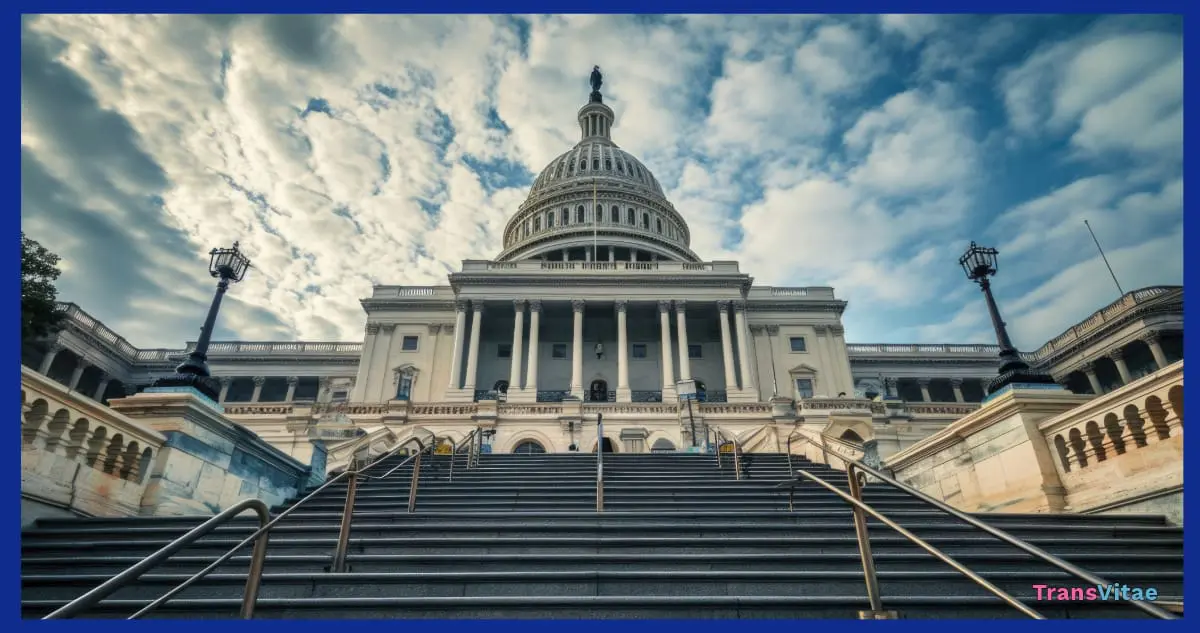Introduction: A Cultural Tug-of-War
In recent years, China has intensified its scrutiny of creative expression, particularly targeting the vibrant and subversive genre of Boys’ Love (BL), known as danmei in Chinese. This genre, which explores romantic and often erotic relationships between male characters, has become a cultural phenomenon, captivating millions of readers—predominantly young women—across Asia and beyond. However, the Chinese government’s recent wave of arrests targeting BL authors has sparked global concern, igniting debates about censorship, freedom of expression, and the precarious state of LGBTQ+ rights in China. Over the past year, dozens of writers, many of them young women, have faced detention, hefty fines, and even prison sentences for publishing gay erotic novels online, particularly on platforms like Haitang Literature City, a Taiwanese website that operates beyond China’s strict internet censorship. This crackdown, described as the largest of its kind, reflects a broader effort to police morality, reinforce traditional family structures, and suppress narratives that challenge state-sanctioned norms. This article delves into the complexities of this issue, exploring the historical and cultural roots of BL, the motivations behind the crackdown, and its implications for creative freedom and marginalized communities in China.
The Rise of Boys’ Love: A Cultural Phenomenon
Origins and Evolution of Danmei
Boys’ Love, or danmei, is a genre of fiction that portrays romantic and often sexual relationships between male characters. Its origins trace back to 1970s Japan, where it emerged as yaoi, a subgenre of manga and literature created primarily by and for women. The term danmei, meaning “indulging in beauty,” is derived from the Japanese concept of tanbi (aestheticism), reflecting the genre’s focus on romantic and aesthetic ideals. In China, danmei began gaining traction in the late 1990s, fueled by the internet’s ability to connect niche communities and the growing influence of Japanese pop culture in Asia. Unlike traditional romance narratives that often reinforce heteronormative stereotypes of passive women and dominant men, BL offers an alternative space where relationships are depicted as egalitarian, emotionally complex, and free from societal expectations around gender roles or reproduction.
The genre’s appeal lies in its subversive nature. For many readers, particularly young women, BL provides a safe space to explore fantasies, sexualities, and identities that challenge the rigid Confucian values still prevalent in Chinese society. These values emphasize filial piety, marriage, and procreation, often placing immense pressure on women to conform to traditional roles as wives and mothers. BL, by contrast, allows readers to imagine love stories that transcend these expectations, offering a form of escapism and empowerment. The genre’s popularity exploded in the 2010s, with platforms like Jinjiang Literature City hosting millions of serialized novels and fostering a vibrant fan culture. Successful danmei titles, such as Heaven Official’s Blessing by Mo Xiang Tong Xiu, have garnered billions of views through adaptations into web dramas, animations, and comics, cementing BL’s status as a cultural and economic force.
The Demographics of Danmei Fandom
One of the most striking aspects of BL is its predominantly female readership and authorship. Studies suggest that over 90% of danmei fans in China are women, many of whom are heterosexual and in their teens or twenties. These “rotten girls” (fujoshi in Japanese, a term playfully adopted by Chinese fans) are often well-educated, urban, and seeking creative outlets in a society that restricts expressions of female sexuality and agency. For these women, writing and reading BL is not just about romantic fantasy but also about reclaiming narrative control in a culture that often silences their voices. The genre’s focus on male-male relationships allows women to explore desire and power dynamics without the baggage of traditional gender roles, creating a space where emotional intimacy and mutual respect take precedence.
The fandom’s growth has also been driven by China’s digital landscape. Online platforms like Jinjiang, Changpei, and Haitang Literature City have democratized publishing, allowing amateur writers to share their stories with millions of readers. These platforms operate on a pay-per-chapter model, where readers purchase access to new content, enabling authors to earn modest incomes. However, this accessibility has also made BL a target for censorship, as its visibility and economic success have drawn the attention of state regulators.
The Crackdown: A Wave of Arrests
Details of the Detentions
Since late 2024, Chinese authorities have detained dozens of BL writers, primarily young women, in what appears to be the most extensive crackdown on the genre to date. Court records from Anhui province indicate that at least 12 authors were tried on obscenity charges in late 2024, while investigations in Gansu province, initiated in spring 2025, have targeted up to 50 writers, according to unverified reports from Chinese media. Many of these authors published their work on Haitang Literature City, a Taiwanese platform that allows explicit content and is accessible in China only through virtual private networks (VPNs) that bypass the country’s internet firewall, known as the Great Firewall.
The charges against these writers typically revolve around the production and distribution of “obscene materials,” a vague category under Chinese law that prohibits works explicitly depicting sexual behavior. Penalties can be severe, with fines often double the authors’ earnings and prison sentences ranging from one to over ten years, depending on the perceived severity of the offense. For example, a writer using the pen name Yun Jian, who earned over $250,000 from 38 novels on Haitang, was sentenced to four and a half years in prison and fined twice her earnings. Others, including university students and low-income writers, have faced similar consequences despite earning as little as $30 from their work.
The case of a graduate student in southern China exemplifies the personal toll of this crackdown. She wrote a 75-chapter romance novel in her spare time, earning less than $400 from readers. During police interrogation, she expressed shock at being targeted, stating she was unaware that her writing could be considered criminal. Her lawyer, Wu Jie, noted that she was one of at least seven authors he was aware of facing similar charges in Gansu. The scale and intensity of these arrests have raised questions about the motivations behind the crackdown, with some speculating that local governments may be exploiting vague obscenity laws to generate revenue through fines, a practice colloquially known as “offshore fishing.”
Legal Framework and “Offshore Fishing”
China’s obscenity laws, rooted in a 1997 criminal code, prohibit the production, reproduction, publication, trafficking, or dissemination of materials deemed “obscene.” The threshold for “serious circumstances” is notably low, with works generating over 5,000 clicks or 5,000 yuan (approximately $700) in profit potentially qualifying for harsh penalties, including life imprisonment. These standards, last updated in 2010, are increasingly seen as outdated in a digital age where online content can amass millions of views with minimal effort. Critics argue that the vague definition of “obscene” allows authorities to target content arbitrarily, particularly when it challenges state-sanctioned values.
The practice of “offshore fishing” has further complicated the issue. Local police in provinces like Anhui and Gansu have been accused of detaining writers from other regions, leveraging their authority to issue summonses based on complaints about online content. This practice has sparked debate about jurisdictional overreach, with legal scholars like Ma Guoguang arguing that such actions violate China’s Criminal Procedure Law, which stipulates that cases should be investigated in the suspect’s place of residence or where the alleged crime occurred. The financial motivations behind these arrests are particularly concerning, as local governments, burdened by debt, may be using fines to bolster their budgets. This tactic has drawn comparisons to historical practices of extortion, raising questions about the rule of law in China’s creative sector.
Censorship and the Boys’ Love Genre
A History of Suppression
The crackdown on BL is part of a broader history of censorship in China, where the government has long sought to control cultural narratives. Homosexuality was decriminalized in China in 1997 and removed from the Chinese Society of Psychiatry’s list of mental disorders in 2001, marking significant steps toward social acceptance. However, the state’s attitude toward LGBTQ+ content remains ambivalent. While same-sex relationships are not illegal, the government has consistently restricted their depiction in media, citing concerns about “social morality” and the influence of “vulgar” content on youth.
The 2010s saw a surge in BL’s popularity, with adaptations like The Untamed and Guardian achieving mainstream success. However, this visibility triggered a backlash. In 2016, the gay web drama Addicted was abruptly removed from streaming platforms mid-season, and in 2018, the Beijing International Film Festival banned the screening of the Oscar-winning film Call Me by Your Name. These actions reflect a broader “Internet Clean-up Campaign” launched in 2021, which targeted not only BL but also other content deemed politically sensitive or morally objectionable. Platforms like Jinjiang Literature City responded by implementing stringent self-censorship measures, rebranding their BL sections as “pure love” (chun’ai) and prohibiting explicit content, such as depictions of body parts below the neck or sexual acts beyond kissing.
The 2018 case of Liu, a writer known as Tianyi, became a flashpoint for public outrage. Liu was sentenced to ten and a half years in prison for her novel Occupy, which depicted a romantic relationship between a teacher and student. The harsh sentence, based on her earning 150,000 yuan from selling 7,000 copies, was widely criticized as disproportionate, especially when compared to lighter penalties for violent crimes. This case set a precedent for the current crackdown, signaling that BL authors could face severe consequences for their work.
The Role of Haitang Literature City
As censorship tightened on mainland platforms, many BL writers turned to Haitang Literature City, a Taiwanese website that allows explicit content and operates outside China’s jurisdiction. Haitang’s accessibility via VPNs made it a haven for authors seeking creative freedom, but it also placed them at risk. The recent arrests of Haitang writers suggest that Chinese authorities are now targeting overseas platforms, a move that has alarmed fans and creators alike. In response, many writers have begun deleting or locking their works on Haitang, PO18, and other platforms, fearing prosecution. The suspension of Haitang until July 8, 2025, further underscores the precariousness of publishing BL in China.
Cultural and Social Implications
Impact on Female and LGBTQ+ Expression
The crackdown on BL is not just about policing obscenity; it is a deliberate effort to control female and LGBTQ+ expression. Scholars like Cassie Hu argue that targeting BL serves to “supervise straight women” and reinforce traditional family structures, particularly in light of China’s declining birth rate, which fell to a record low of 1.09 children per woman in 2022. The government views BL’s popularity as a threat to its pro-natalist policies, which emphasize heterosexual marriage and reproduction. By criminalizing BL, authorities aim to suppress narratives that challenge these norms, effectively silencing both female authors and the broader LGBTQ+ community.
For many women, BL is a form of resistance against patriarchal expectations. The genre’s focus on male-male relationships allows female writers to explore desire and power dynamics without the constraints of traditional gender roles. However, this subversive potential has made BL a target for state censorship, which seeks to maintain a heteronormative social order. The arrests of predominantly female authors also highlight the intersection of gender and censorship, with some critics arguing that the crackdown is inherently misogynistic, punishing women for expressing their sexuality and creativity.
The impact on the LGBTQ+ community is equally significant. While BL is primarily written by and for heterosexual women, its depiction of same-sex relationships has fostered greater visibility and acceptance of queer identities in China. The genre’s mainstream success has inspired real-world activism, such as the 2009 Shanghai Pride Festival and the 2010 “Smile4Gay” campaign, which saw thousands of heterosexual supporters advocating for LGBTQ+ rights. However, the crackdown on BL threatens to stifle these gains, pushing queer narratives further underground and reinforcing the marginalization of the LGBTQ+ community.
Global Reactions and Creative Freedom
The arrests have sparked widespread outrage, both within China and internationally. Online commentators have criticized the disproportionate sentences, noting that some BL authors face harsher penalties than perpetrators of violent crimes. Lao Dongyan, a law professor at Tsglinghua University, argued that the focus on “safeguarding social mores” comes at the expense of individual rights, a sentiment echoed by many on social media before such discussions were censored. Internationally, organizations like PEN America have condemned the crackdown as a violation of the freedom to write, drawing parallels to other cases of literary censorship in China, such as the abduction of Hong Kong booksellers in 2015.
The crackdown has also prompted a broader debate about creative freedom in China’s digital age. The internet has long been a space for marginalized voices, but the government’s increasing control over online content—through AI censorship, platform regulations, and legal prosecutions—has narrowed this space. BL writers, in particular, face a dilemma: self-censor to avoid punishment or risk detention by publishing on overseas platforms. This tension underscores the broader struggle for artistic expression in a society where state ideology often supersedes individual creativity.
Historical and Cultural Context
Homosexuality in Chinese History
China’s complex relationship with homosexuality provides essential context for understanding the current crackdown. Same-sex relationships have a long history in China, documented as early as the Zhou dynasty (1046–256 BCE). Classical texts like Dream of the Red Chamber and the 17th-century anthology Bian er chai depict homoerotic relationships with a degree of acceptance, reflecting a cultural openness to diverse expressions of love. However, this tolerance waned during the late Qing dynasty and early Republic of China, influenced by Western moralities and anti-gay attitudes introduced during the 19th and 20th centuries.
Under Mao Zedong’s rule, homosexuality was stigmatized as a bourgeois vice, and gay individuals faced persecution. The post-Mao era saw gradual liberalization, with decriminalization in 1997 and depathologization in 2001. However, the government’s focus on social stability and traditional values has limited progress on LGBTQ+ rights. Same-sex marriage remains illegal, and public displays of queer identity are often suppressed, as seen in the 2021 closure of the Beijing LGBT Center and the deletion of LGBTQ+ student group accounts on WeChat.
The Role of Music and Media in BL Culture
BL’s cultural impact extends beyond literature to music and media, where it has inspired a range of adaptations and fan creations. Soundtracks for BL dramas, such as The Untamed’s haunting melodies by Lin Hai, have become iconic, blending traditional Chinese instruments like the guzheng with modern orchestral arrangements to evoke the emotional depth of the stories. Fan communities have also produced music, including original songs and covers, to celebrate their favorite BL couples, further amplifying the genre’s reach. These cultural products have helped mainstream BL, making it a significant force in China’s entertainment industry and a target for censorship.
Conclusion: A Chilling Effect on Creativity
The crackdown on Boys’ Love authors represents a significant escalation in China’s efforts to control cultural narratives and suppress expressions of gender and sexuality that deviate from state-sanctioned norms. By targeting a genre that empowers women and amplifies queer voices, authorities are not only stifling creative freedom but also reinforcing a heteronormative, patriarchal social order. The arrests, fines, and prison sentences have sent a chilling message to writers and fans, forcing many to self-censor or abandon their work altogether. Yet, the resilience of the BL community—evident in their continued creation and consumption of stories despite censorship—suggests that the desire for self-expression and representation will persist. As China navigates its complex cultural landscape, the struggle for creative freedom and LGBTQ+ visibility remains a critical battleground, one that will shape the future of artistic and social discourse in the country.
References
This article draws on various sources, including court records, media reports, and academic analyses, to provide a comprehensive overview of the crackdown on Boys’ Love authors in China. Key insights were informed by statements from legal scholars like Lao Dongyan and lawyers like Wu Jie, as well as cultural analyses by academics such as Cassie Hu and Liang Ge. Historical context was derived from studies of Chinese literature and LGBTQ+ history, while contemporary data on censorship and fandom were gathered from reputable news outlets and social media discussions. All facts have been cross-verified to ensure accuracy, reflecting the latest developments as of June 30, 2025.



















0 Comments